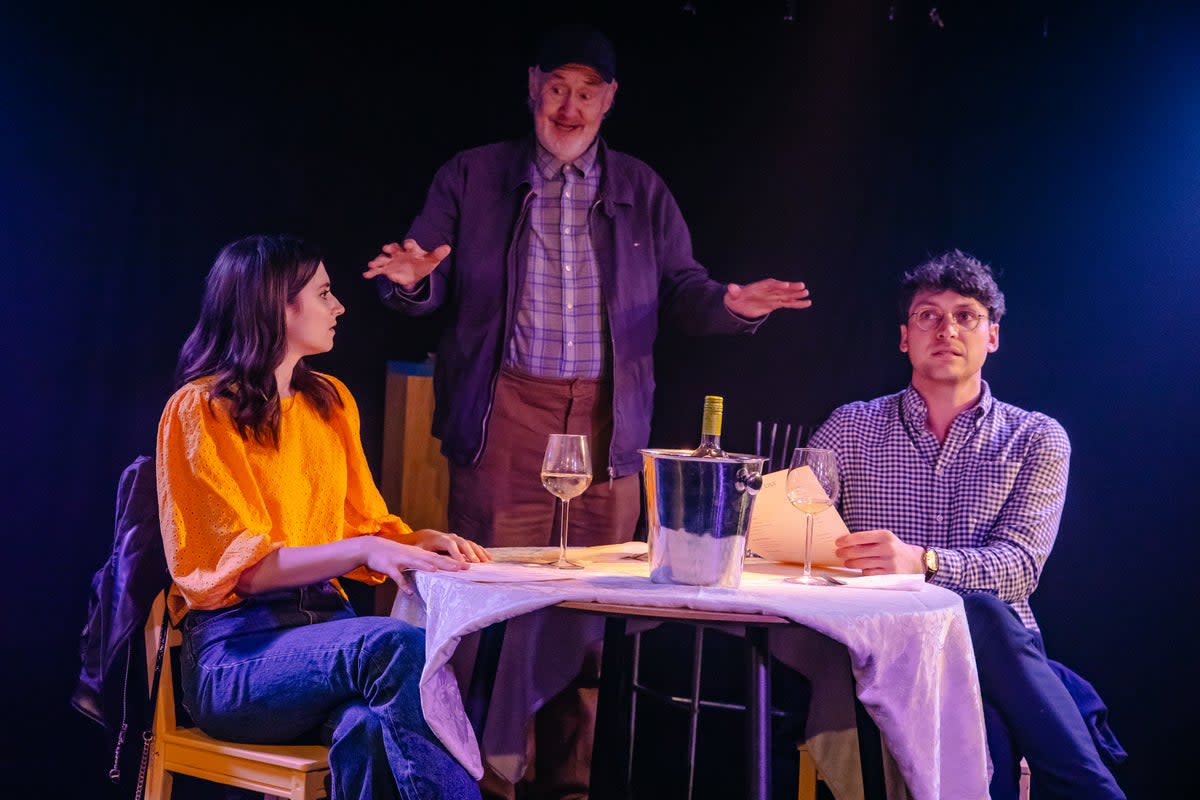The Arc: A Trilogy of New Jewish Plays at Soho Theatre review – both too much and too little going on

Despite riffing on birth, marriage and death, these three short Jewish plays by established writers make for a shallow, sketchy evening. On the plus side, each script – by Amy Rosenthal, Alexis Zegerman and Ryan Craig – strikes out in surprising directions. God makes an appearance in a modern London where the diaspora has reached all the way down the Northern Line to Tooting, as does a hamster named after Israel’s only female prime minister, Golda Meir.
But it’s a big minus that Kayla Feldman’s production is so stiff and phony. The cast includes veterans Nigel Planer and Adrian Schiller, and talented relative newcomer Abigail Weinstock, but I didn’t believe for one moment that they, or anyone else on stage, believed in the dialogue they were speaking. This is bad-faith acting in a handful of playlets – “trilogy” is too grand a word – that are all about faith, culture and family.
We kick off with retired obstetrician Michael (Planer), celebrating his 50th wedding anniversary with wife Lynda (Caroline Gruber), when a mystery woman (Dorothea Myer-Bennett) turns up, and implicates him in her birth trauma. A discussion on the way we quantify and respond to suffering ensues, including a blunt reference to the Holocaust. Then Rosenthal suddenly frees Lynda from her husband’s God-complex dominance in a monologue that cycles back to the opening metaphor of a crossword clue. Too cryptic for me, sorry.
In Zegerman’s play Planer apparently becomes God, in the guise of restaurant customer Godfrey, forcing Eva (Weinstock) and Adrian (Sam Thorpe-Spinks) endlessly to replay a buttock-clenchingly awful first date because he’s chosen them to “propagate the Jewish race”. Everything feels like a cliché here, from Adrian’s gauche blurtings to Eva’s sentimentalism over animals to the parodic rudeness of the waitress. “Jesus Christ!” exclaims Adrian at one theistic intrusion. “That’s a WHOLE other story,” quips Planer’s Godfrey, only just resisting a wink and a shrug to the audience.
Characters don’t carry over between the playlets but themes and actors do. So in Craig’s final tale Weinstock is Leah, sarcastic daughter of omnipotent but distant cancer surgeon (Schiller) and sister to Adam (Dan Wolff), who’s almost as much of a nerd as Adrian. Here the realities of death and of family dysfunction are transferred onto the aforementioned hamster.
There’s simultaneously too much and too little going on throughout. Evaluations of centuries-old traditions are juxtaposed with quips about Brexit. Meditations on identity and mortality are torpedoed by mawkishness. The 65-minute running time doesn’t allow the threads linking each tale to develop. Most importantly, the obvious intelligence of the writing is undermined by a complete absence of emotional truth in the characterisation.
The stated aim of production company Emanate is to bring together new and established voices to inject Jewish stories into the mainstream, which is entirely laudable. But those stories need to be bigger, better, and delivered with a whole lot more conviction than these ones.
Soho Theatre, to August 26, sohotheatre.com


